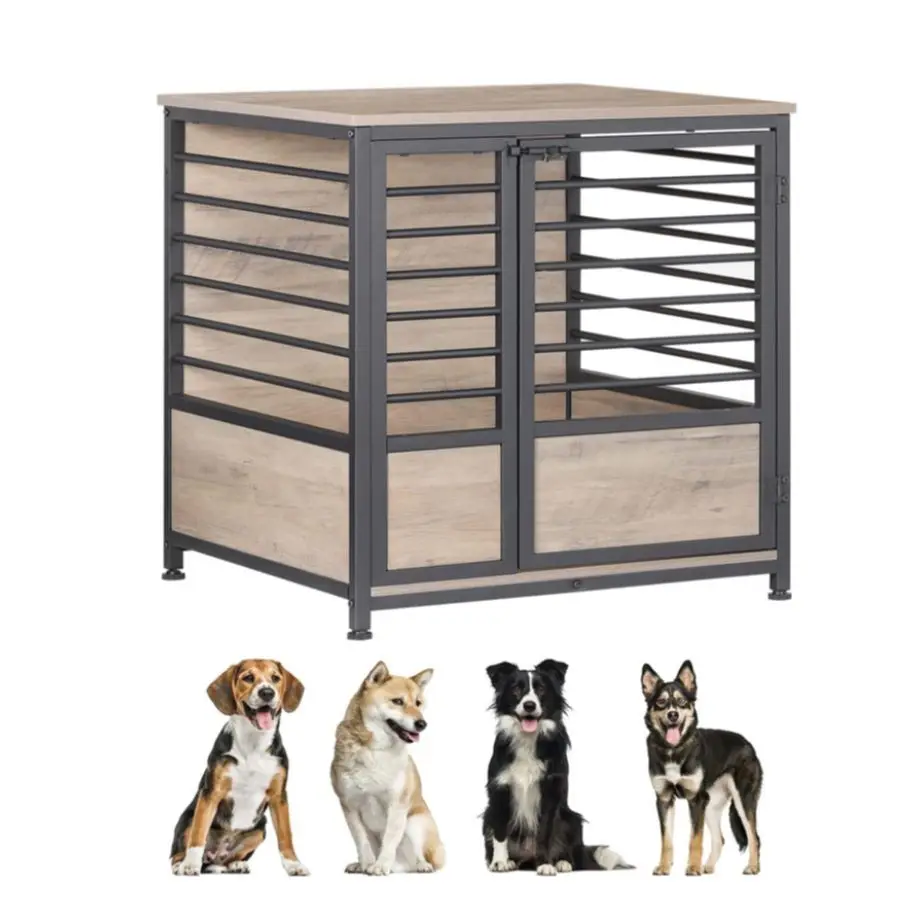Overview of Kennel Cough in Dogs
Kennel cough is a widespread issue in the canine world. It is known medically as canine infectious tracheobronchitis. Dogs with kennel cough suffer from an inflamed respiratory system, which causes a persistent, dry cough. This illness is similar to a chest cold in humans and is highly contagious among dogs, especially in situations where they are close together, like kennels or shelters. So, can dogs die from kennel cough?

Highly Contagious Nature:
It spreads easily through airborne droplets when an infected dog coughs or sneezes. Physical contact and sharing bowls or toys can also transmit the disease. Since it is so contagious, it’s common in places where dogs gather.
Variety of Pathogens Involved:
Several agents can cause kennel cough, including Bordetella bronchiseptica bacteria and viruses like the parainfluenza virus. Because multiple pathogens can be involved, it can be a challenge to treat.
Mild yet Distressing Symptoms:
While rarely fatal, kennel cough can be quite uncomfortable for affected dogs. The hallmark is a harsh, dry cough that can sound like honking. In some cases, it can lead to more severe conditions. However, with proper care, most dogs recover without complications.
Potential Complications:
Although not common, complications can occur, especially in puppies, older dogs, or those with weakened immune systems. These complications can extend recovery time and increase treatment costs.
Importance of Vaccination:
Vaccination can help prevent kennel cough, or at least reduce its severity. It’s particularly vital for dogs that are frequently in contact with other dogs, such as those attending dog parks or boarding facilities.
By understanding what kennel cough is and how it affects dogs, owners can take the necessary steps to protect their furry friends. From recognizing symptoms to preventing transmission, awareness is the key to keeping dogs healthy.
Signs and Symptoms to Watch For
When your dog has kennel cough, specific signs will appear. Here’s what to monitor:
Persistent Dry Cough
The main symptom is a harsh, dry cough. It may sound like honking or as though there’s something caught in your dog’s throat.
Gagging and Retching
Your dog might gag, retch, or seem to be trying to clear something from its throat, especially after a coughing fit.
Nasal Discharge
You may also notice a runny nose in addition to coughing.
Lethargy
Affected dogs can be less active and show signs of tiredness or low energy.
Reduced Appetite
Illness can lead to reduced interest in food or minor weight loss.
Fever
Though less common, some dogs with kennel cough develop a fever.
It’s important to keep an eye on these symptoms. If you notice them, isolate your dog from others and contact a vet. Early diagnosis and treatment can prevent more serious conditions. Kennel cough is highly contagious and can spread to other dogs quickly. It’s not often deadly but should be taken seriously, especially for puppies and older dogs.
Transmission: How Dogs Contract Kennel Cough
Dogs often get kennel cough through exposure to infected dogs. This can happen at dog parks, kennels, or shelters. When infected dogs cough or sneeze, they spread germs through the air. These germs can linger on toys, bowls, and surfaces. Dogs can pick up the virus by sniffing or touching these objects. People can also carry germs on hands or clothes after petting an infected dog. It’s vital to clean and disinfect items that sick dogs have used. This helps stop the spread of infection to other dogs. If your dog shows signs of a cough, keep them away from other dogs. This will help protect other pets from catching kennel cough too.
Diagnostic Approaches for Kennel Cough
When suspecting kennel cough, vets follow certain steps. They’ll look for signs and ask about your dog’s history. Here are main methods to diagnose this illness:

Clinical Examination
A vet listens to your dog’s lungs and checks for coughing. This exam can often show if your dog has kennel cough.
History of Exposure
Vets will want to know if your dog has been near other dogs. This could be at parks, kennels, or shows.
No Specific Laboratory Tests
There are no unique tests for kennel cough. But vets don’t typically need them to diagnose.
Additional Tests for Complications
In some cases, vets may order x-rays or blood tests. These are to rule out other serious diseases or check for complications like pneumonia.
Observation of Symptoms
Vets watch for the cough and other key signs. This helps confirm the diagnosis.
In summary, identifying kennel cough involves looking at symptoms, checking the dog’s past exposures, and sometimes doing more tests. This helps vets give the right care to your dog.
Treatment Options for Kennel Cough
When your dog is diagnosed with kennel cough, treatment depends on the symptoms’ severity. Most cases are mild and resolve without intensive medical intervention, but understanding the available treatments can help you manage your dog’s health effectively. Here’s a look at the common treatments for kennel cough:
Supportive Care
Most dogs with kennel cough recover with supportive care, which includes:
- Keeping them warm and dry: Ensure your dog stays in a comfortable environment.
- Proper hydration: Encourage your dog to drink water to keep the throat moist and reduce irritation.
- Limiting exercise: Reduce physical activity to lower the chances of coughing spells.
Medication
Depending on your dog’s condition, the vet might recommend medications:
- Cough suppressants: These can help ease the discomfort of a persistent cough.
- Antibiotics: Used if there is a suspected bacterial involvement, antibiotics can prevent secondary infections.
- Anti-inflammatory medications: These can help reduce inflammation in the respiratory tract.
Home Remedies
Simple home treatments can supplement medical treatments:
- Steam therapy: Letting your dog inhale steam from a hot shower can help ease the cough.
- Humidifiers: Running a humidifier in your dog’s rest area can keep air moist and soothe irritated airways.
Isolation
To prevent the spread of infection, keep your dog isolated from other dogs until fully recovered.
Always consult with your veterinarian to choose the best treatment plan tailored to your dog’s specific needs and condition.

Prevention Strategies and Vaccination
To prevent kennel cough, follow these strategies and consider vaccination.
Vaccination to Reduce Risk
Vaccines play a critical role in reducing kennel cough risks. They lessen the severity of symptoms. Dogs at high risk should get vaccinated. This includes those going to kennels, dog parks, or grooming salons. Discuss with your vet which vaccines are right for your dog.
Good Hygiene Practices
Regular cleaning of your dog’s space is important. Disinfect bowls, toys, and bedding often. Always wash your hands after touching dogs, especially if they are not yours.
Controlled Exposure
Limit your dog’s exposure to other dogs, especially in outbreak areas. Avoid dog parks, kennels, and grooming places if kennel cough is present. Choose well-ventilated, clean environments for your dog’s activities.
Strengthen Immune System
A healthy diet and regular exercise help strengthen your dog’s immune system. This can reduce the risk of getting kennel cough. Talk to your vet about the best diet and exercise plan for your dog.
Remember, while vaccines reduce severity, they don’t guarantee full prevention. Therefore, combine vaccination with these strategies for the best protection.
Recovery and Management of Kennel Cough
When dogs get kennel cough, recovery can vary. Most bounce back within a few weeks. But for some, especially the young or old, it might take longer. Managing the illness correctly can speed up healing. Here are key points to keep in mind:
Providing Rest and a Stress-Free Environment
Rest is crucial for dogs with kennel cough. A calm place helps them heal faster. Ensure they have a comfortable spot that’s away from noise and stress.
Ensuring Proper Hydration and Nutrition
Sick dogs need water and good food to recover. Encourage your dog to drink plenty of fluids. Offer them tasty, nutritious food that’s easy to swallow.
Keeping Up With Medications
If your vet prescribes medicine, follow the instructions closely. Don’t skip doses. This helps keep symptoms under control and prevents complications.
Isolating the Dog to Prevent Spread
Kennel cough spreads fast among dogs. Keep your sick dog away from other dogs until they’re well. This helps stop the illness from spreading.
Monitoring for Worsening Symptoms
Watch your dog for new or worse symptoms. If you see any, tell your vet right away. Quick action can prevent more serious issues.
Following Up With the Vet
After your dog gets better, have a follow-up check. This makes sure they are truly over the illness. The vet might need to check their lungs and overall health.
Disinfecting Your Home
Clean items your dog uses, like bowls and toys. Use bleach and water to kill germs. This keeps the illness from coming back or spreading.
Gradual Return to Normal Activities
Once your dog starts feeling better, slowly increase their activity. Don’t rush them back into exercise or play. Let them build up their strength gradually.
Most dogs with kennel cough don’t get very sick and recover with the right care. By keeping a close eye on them and being careful, you can help your dog get back to normal. Always talk to your vet if you’re not sure what to do. They can guide you and make sure your dog gets well soon.
The Cost of Treating Kennel Cough
Dealing with kennel cough’s financial aspects is important for dog owners. Here’s what you might expect:
Veterinarian Consultation Fees
Visiting your vet is the first step. A typical visit might cost between $50 to $150.
Medication Costs
Depending on your dog’s need, medication could be just cough suppressants or antibiotics. This may range from $20 to $100.
Additional Diagnostic Tests
For severe cases, X-rays or blood tests might be necessary. This could add $100 to $300 to your bill.
Potential for Hospitalization
Severe cases requiring hospitalization will substantially increase costs, ranging from $500 to $2000 depending on the needed care duration and complexity.
Long-Term Care
For dogs with persistent symptoms or complications like pneumonia, costs may climb with ongoing treatments or repeated vet visits.
Preventative Measures Costs
Vaccinations and regular vet checks add up. Planning for preventative care could save money in the long run.
Insurance
Pet insurance might cover some of these expenses. It’s worth checking your policy details to understand what’s included.